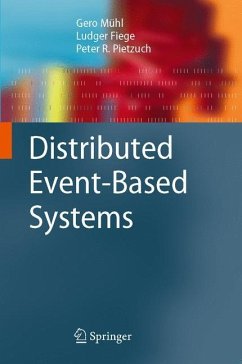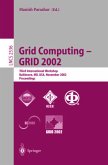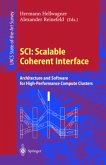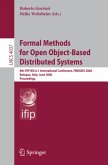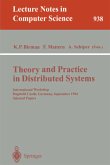In today's world, services and data are integrated in ever new constellations, requiring the easy, flexible and scalable integration of autonomous, heterogeneous components into complex systems at any time.
Event-based architectures inherently decouple system components. Event-based components are not designed to work with specific other components in a traditional request/reply mode, but separate communication from computation through asynchronous communication mechanisms via a dedicated notification service.
Mühl, Fiege, and Pietzuch provide the reader with an in-depth description of event-based systems. They cover the complete spectrum of topics, ranging from a treatment of local event matching and distributed event forwarding algorithms, through a more practical discussion of software engineering issues raised by the event-based style, to a presentation of state-of-the-art research topics in event-based systems, such as composite event detection and security. Their presentation gives researchers a comprehensive overview of the area and lots of hints for future research. In addition, they show the power of event-based architectures in modern system design, thus encouraging professionals to exploit this technique in next generation large-scale distributed applications like information dissemination, network monitoring, enterprise application integration, or mobile systems.
Event-based architectures inherently decouple system components. Event-based components are not designed to work with specific other components in a traditional request/reply mode, but separate communication from computation through asynchronous communication mechanisms via a dedicated notification service.
Mühl, Fiege, and Pietzuch provide the reader with an in-depth description of event-based systems. They cover the complete spectrum of topics, ranging from a treatment of local event matching and distributed event forwarding algorithms, through a more practical discussion of software engineering issues raised by the event-based style, to a presentation of state-of-the-art research topics in event-based systems, such as composite event detection and security. Their presentation gives researchers a comprehensive overview of the area and lots of hints for future research. In addition, they show the power of event-based architectures in modern system design, thus encouraging professionals to exploit this technique in next generation large-scale distributed applications like information dissemination, network monitoring, enterprise application integration, or mobile systems.
From the reviews: "The book provides the reader with both formal treatment and practical discussion of issues raised by the event-based style. ... By its content, the book addressees the software development theorists and practitioners alike, especially those interested in large-scale distributed application design and implementation. It is largely self-contained and the exposition is meticulous and rigorous. Altogether, this book is a great enrichment to the existing texts on the subject, and it deserves a wide audience." (Tudor Balanescu, Zentralblatt MATH, Vol. 1116 (18), 2007) "This book is an overview of the key theory and concepts around the event systems used by loosely coupled distributed applications. ... Overall, I think the book's coverage of theory and specification is strong. It provides a good framework for understanding the theoretical foundations of event-based systems." (W. Hu, ACM Computing Reviews, Vol. 49 (5), 2008)

